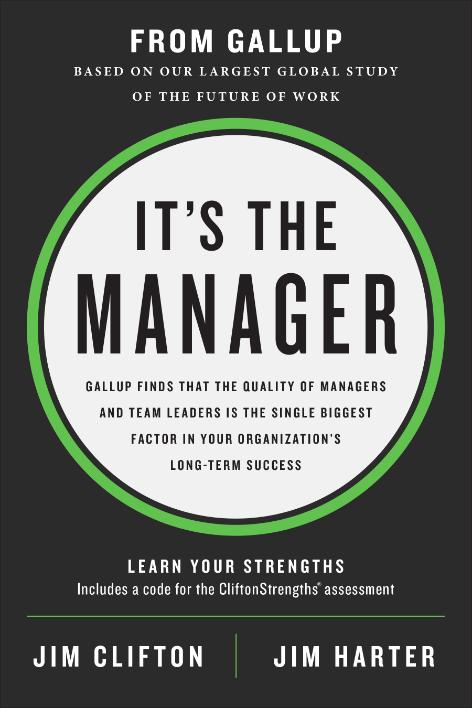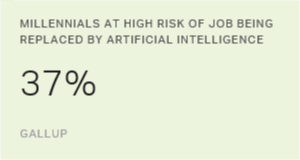Story Highlights
- If baby boomers' needs go unmet, they will not be engaged at work
- Great managers coach in ways that speak to boomers' strengths, passions and goals
- Develop your managers into coaches to see peak performance from boomers
Baby boomers are often highly experienced and capable employees.
Over time, these seasoned workers tend to have cultivated deep organizational expertise -- tacit knowledge that helps them accomplish tasks with minimal friction.
But baby boomers' tenure doesn't automatically result in performance excellence.
Like all employees, baby boomers have basic psychological needs, like knowing what's expected of them at work and feeling like their opinions matter. If these engagement needs are met, baby boomers will create more, do better work and go the extra mile to win business.
That is, they'll be highly engaged in their work.
On the other hand, if baby boomers' needs are ignored, their performance will diminish -- no matter how much experience they have.
In fact, without engagement, tenure has a relatively small effect on performance, according to Gallup analytics.
This means that baby boomers' decades of expertise can only result in world-class performance if they have high engagement.
Here's the problem: Only about one-third of baby boomers are engaged at work.
So, how can leaders engage baby boomers and make the most of their experience?
Gallup's decades of analytics point to one clear solution for optimizing baby boomers' potential: empowering managers by transforming them into coaches who cultivate world-class engagement.
Invest in Your Managers
Managers -- through their strengths, their own engagement and how they work with their teams every day -- account for 70% of the variance in team engagement. In other words, managers make or break team engagement.
Great managers stoke performance by serving as coaches who meet employees' needs. They continually develop their people and maintain accountability. They focus on what each team member does best -- an approach that's proven to amplify productivity and performance.
Consider, for example, baby boomers' glaring need for more opportunities to learn and grow at work. Just three in 10 baby boomers strongly agree they receive such opportunities. Further, baby boomers are the least likely generation to strongly agree they learn new things at work (only 14% strongly agree).
Just three in 10 baby boomers strongly agree they receive opportunities to learn and grow at work.
A well-equipped manager understands how to provide individualized coaching opportunities that are tailored to baby boomers' strengths, passions and goals. He or she helps baby boomers grow by engaging in frequent coaching conversations, asking questions like:
- How would you like to make a bigger difference?
- What knowledge and skills do you need to reach your goals?
- How would you like to use your strengths in the future?
With the backing of a great manager, all employees thrive -- from tenured baby boomers to green Generation Z employees.
In turn, outcomes like performance and productivity boom. Just as important, leaders can better attract talented workers who are looking for a development-rich employee experience.
How to Develop Managers Into Coaches
Preparing managers to coach goes beyond telling them to coach. Leaders need to:
1. Redefine managers' roles and expectations.
Most companies don't require managers to provide frequent, ongoing performance coaching. On the contrary, managers' administrative responsibilities often make it difficult to prioritize employee conversations.
It's incumbent on leaders to evolve managers' role expectations to emphasize employee development -- and ensure managers understand these expectations with perfect clarity.
2. Provide the tools, resources and development managers need to satisfy role expectations.
Without the right materials and training, managers will struggle to coach their people with excellence. For example, managers need practical advice and solutions for leading meaningful coaching conversations with employees.
Leaders should make manager development a never-ending priority -- delivering everything from ongoing strengths-based development to transformative learning experiences that teach managers how to be coaches.
3. Support managers with world-class leadership.
Leaders of exceptional workplaces own their role as managers of managers. That is, they ensure managers have everything they need to flourish.
This means prioritizing manager engagement. It means empowering managers with proven systems and processes, such as employee analytics and proven performance management practices. It means cultivating a thriving workplace culture.
Without a doubt, positioning managers to coach will unleash baby boomers' performance potential.
Leaders should make manager development a never-ending priority -- delivering everything from ongoing strengths-based development to transformative learning experiences that teach managers how to be coaches.
But this is only the beginning.
When baby boomers are deeply invested in their work, they can better inspire younger workers. They can encourage creativity, innovation and excellence. They can enrich the development of future generations.
The end result is a workforce that's motivated to stay and empowered to achieve unprecedented performance.
Gallup can help you develop your managers into coaches and improve business performance for all generations:
- Partner with us to build a workplace culture that engages and inspires employees.
- Download our report, State of the American Workplace.
- Register for the course, Coaching for Individuals, Managers and Teams in a city near you.



